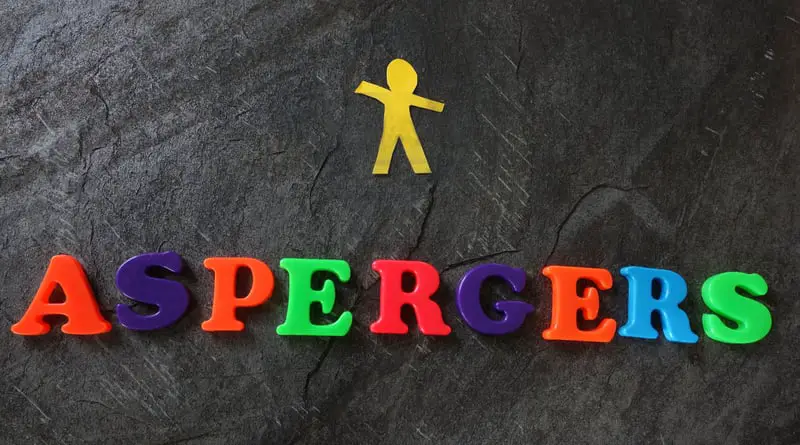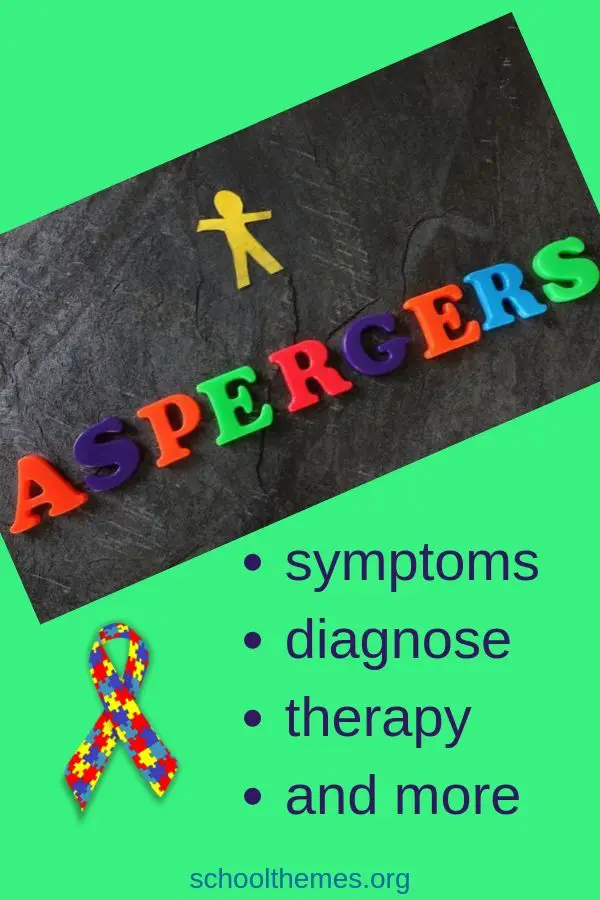What Is Asperger’s Syndrome
Asperger syndrome (AS) is a milder form of ASD (autism spectrum disorder) defined by significant difficulty in social interaction and communication.

The prevalence of children with autism continues to climb. Teaching children with autism symptoms remains a major challenge for many schools. A recent report by the CDC (Center for Disease Control) reviewed information from 14 states and found that approximately 1 in – 150 children, 8 years of age have Autism Spectrum Disorder. There is no national or Military registry so true prevalence is unknown but it is more common than childhood cancer, juvenile diabetes and pediatric AIDS combined.
Children with AS usually do not have language development delay which is one of the high functioning autism symptoms. They also normally do not exhibit delay in cognitive development and can use their imagination unlike children with autism. AS often leads to clumsy behavior and problems interpreting social cues like body language. In fact social interaction impairment can be severe in some people. But there is no stereotyped behavior or interests exhibited by an AS child, and he or she will often test with above average intelligence.
Asperger Guides for Professionals and Parents
Medical professionals who treat children with Asperger Syndrome point out that children with AS are not “mildly autistic”. These children have an autistic condition with its own specific symptoms requiring its own specific treatment. The symptoms of Asperger’s Syndrome often appear at a later age than Autistic Disorder. It also occurs more frequently in males than females and is a lifelong condition.
Asperger syndrome symptoms
The symptoms of AS are usually fewer and milder than those expressed in an autistic child. What are some of the specific symptoms that are often exhibited by the presence of Asperger Syndrome? Though the actual behaviors and communication skills vary from person to person, typical symptoms include the following.
- Problems processing information leading to unusual cognitive results
- Difficulty interacting with others in ways that are socially normal and considered acceptable
- Often exhibits unresponsive behavior resulting from an awareness of being “different” from other children and of being unable to process information in the ways other children do
- Unable to determine proper behavior based on the social setting
- Difficulty grasping the basis of friendship
- Often has excellent language skills but unable to apply them during social interaction
- Difficulty interpreting body language, and emotional or vocal cues expressed by others
- Difficulty with reading, writing and math in school
- Often self-focused
- Can be involved in repetitive behaviors
These are certainly not all of the symptoms of Asperger’s Syndrome but the list provides a basic understanding of how the syndrome exhibits itself.
Some people are under the mistaken impression that children with Asperger’s Syndrome are simply children who have not been taught how to interact socially. This is not true, because AS is a neurological disorder.
Medical doctors have not been able to pinpoint the cause of AS but it is believed it is hereditary. Researchers are also studying whether AS is related in any way to depression or other mental disorders.
How is Asperger’s syndrome diagnosed
Asperger Syndrome can be difficult to diagnose for obvious reasons. A child may not have friends or acts oddly yet verbal skills are intact. The disorder tends to appear later than in children than autism and is often diagnosed between the ages of 5 and 9. It has been diagnosed as early as 3 years old. Autistic children are often diagnosed at 2 years old and sometimes even younger.
There is no cure for Asperger Syndrome. But with early intervention children can lead happy, satisfied and near normal lives. The key is to begin treatment as early as possible.
As many as 400,000 children or 1 in 300 have Asperger’s Syndrome meaning there are many children in classrooms needing special attention. They present educational challenges in and out of the classroom because of their impaired social skills and the varying ways they process incoming information.
Asperger therapy and education
There are a number of treatments used to help children with AS. They include the following.
- Behavior therapy
- Psychotherapy
- Educational interventions
- Training in social skills
Many intervention strategies designed to help children with AS use a blend of psychotherapy, feedback and educational tools. One of the most important strategies relies on parents and teachers. The use of specially designed teaching tools can be instrumental in teaching children with AS the social and cognitive skills they need.
For example, there are visual and audio materials that engage the AS child with the intent of improving the ability to process information and monitor social communication. In other words, the child learns appropriate behaviors by reading or listening to specially designed scripts followed by interaction sessions. Visual support educational materials can play a critical role in treating AS.
There is a wealth of information about Asperger’s Syndrome available on the internet.
Teachers educating children with Asperger’s Syndrome are well aware of the challenges and special needs. The specially designed educational materials coupled with skills training can make each session productive and beneficial for the child.
Asperger syndrome treatment
Because AS can present patterns of behaviors and problems that differ widely from child to child, there isn’t a “typical” or prescribed treatment regimen. However, your child may benefit from the following forms of treatment:
- parent education and training
- specialized educational interventions for the child
- social skills training
- language therapy
- sensory integration training for younger kids, usually performed by an occupational therapist, in which they are desensitized to stimuli to which they’re overly sensitive
- psychotherapy or behavioral/cognitive therapy for older children
- medications
It will help if you involve all of your child’s caregivers in the treatment. The health professionals who are caring for your child should know what the others are doing, and you will often find yourself acting as the “case manager” in this scenario. Teachers, babysitters, other family members, close friends, and anyone else who cares for your child also should be involved.


